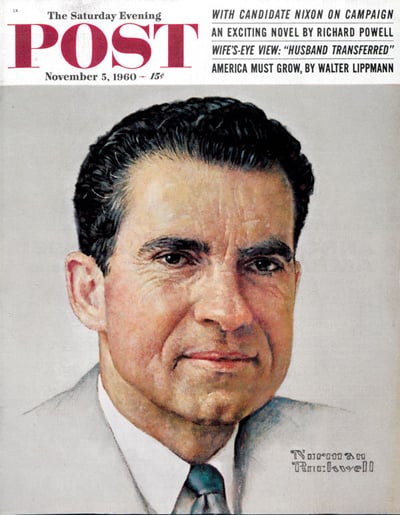
Earlier this year, many in the media celebrated the 40th anniversary of the Watergate break-in. Celebrate is not too strong a word for the self-congratulatory outpouring from reporters and commentators, many of whom saw themselves as the last bastion of defense of our very freedoms against the Nixon administration’s onslaught. And there is no doubt that, had he not resigned in 1974, Richard Nixon rightly would have been impeached and removed from office as a result of his clear and pernicious crimes.
However, as we look back after four decades, it’s time to recognize a Richard Nixon that too many people overlook: a strange, awkward, self-hating man who transformed America—and the world—in ways that only the greatest leaders could dream of.
Nixon’s opening to China in 1972 is his most dramatic achievement—one that even his most dedicated enemies will grant him. Only a fierce anti-Communist like Nixon could have had the political capital to reverse decades of American foreign policy overnight; and only a wise foreign-policy strategist could have guaranteed that this reversal would be permanent. But Nixon’s domestic accomplishments probably have a greater effect on our lives, and just listing some of them make the point: the Philadelphia Plan and the Affirmative Action legislation that guaranteed employment rights to minorities and women; the Equal Rights Amendment; the Title IX Act, which revolutionized women’s sports; and the Environmental Protection Act; the Clean Air Act; and establishing the Occupational Safety and Health Administration. His proposal to revolutionize healthcare coverage would have been far-reaching and comprehensive—40 years before Obamacare. Ted Kennedy said his worst mistake was opposing Nixon’s health plan for political reasons.
Historian Robert Caro’s great biographies of Lyndon Johnson have done much to make new generations understand LBJ’s complexities—this corrupt, foul-mouthed bully who simultaneously brought America the blessing of civil rights along with the evil of the Vietnam War. Surely it is time for a gifted writer to illuminate our most Shakespearian president: Richard Nixon—a man of outstanding ability and accomplishment who went to great lengths to record his most secret, shameful, private thoughts and deeds; and who, by refusing to destroy those tapes, ensured his own destruction.
The opinions expressed in “The Contrarian View” do not represent those of The Saturday Evening Post.
Become a Saturday Evening Post member and enjoy unlimited access. Subscribe now
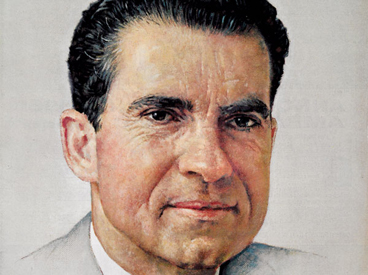
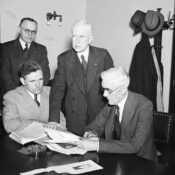
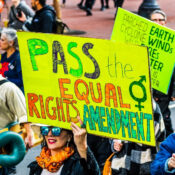
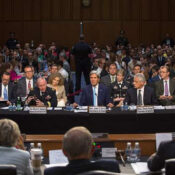
Comments
Yes, Nixon did good things. The writer neglected to mention Nixon’s proposal of a guaranteed annual income, which could have preempted decades of bureaucratic proctoscopy applied to poor people who already had enough humiliation to live with.
However, it was Nixon, or rather, John Mitchell, Nixon’s Attorney General, who was fulfilling Nixon’s order, to classify marijuana as a Schedule I drug. This was done to give the federal government a dandy weapon to use in its lunatic, paranoid war against its perceived domestic enemies, blacks and the student left. This classification is still in effect, and God alone knows how many millions of lives have been destroyed because of it.
But maybe the best reason not to become a Nixonphile is the recent emergence of solid reason to believe that Nixon, using Anna Chennault as a sort of courier to assure the South Vietnamese government that they would get a better deal in a Nixon administration, scuttled the peace talks that President Johnson had managed to talk the North Vietnamese into participating in in the Autumn of 1968, not long before the election. On YouTube, you can hear an audiotape of a phone call between President Johnson and the venerable Republican senator from Illinois, Everett Dirksen, in which Johnson refers to Nixon’s actions as “treason,” an evaluation Dirksen agrees with.
An excellent article on President Nixon. A few more accomplishments include the signing of the Paris Peace Accords in 1973, finally ending U.S. involvement in Vietnam, then bringing the POW’s home again.
Dedicating $100m to begin the war on cancer that created cancer centers across the country. He effectively shut down organized crime resulting in more than 2,500 convictions during his Presidency.
Nixon’s greatest mistakes were not having enough faith in himself, and picking out some REALLY lousy men to be on his staff. Two of the worst were G. Gordon Liddy and H.R. Haldeman. The very idea of bugging DNC headquarters was and still is ludicrous. The bottom line was he had the ’72 re-election all wrapped up. His ‘competition’ was George McGovern, a decent man to be sure, but no threat to Nixon, where he’d need to pull a stunt like that.
Haldeman, Erlichman, Mitchell, Dean, all went ‘Judas’ on Nixon in attempts to save themselves from drowning in the twisting, whirling water vortex that would get them all. If these men had not been on his staff, it’s unlikely any of this nonsense would have happened. It wasn’t even the stupid break-in that did Nixon in, it was the cover-up.
If I had been Nixon, and I could see where this could be going, I’d have demanded a full investigation OR… admitted I ordered the break-in for reasons of National Security that cannot be disclosed for that very reason. Thank God it was a false alarm, but we wouldn’t have known that unfortunately, without it.
That should, and I think would have ended it, letting Nixon finish his 2nd term being remembered for all of the things he did that that made him a great President.